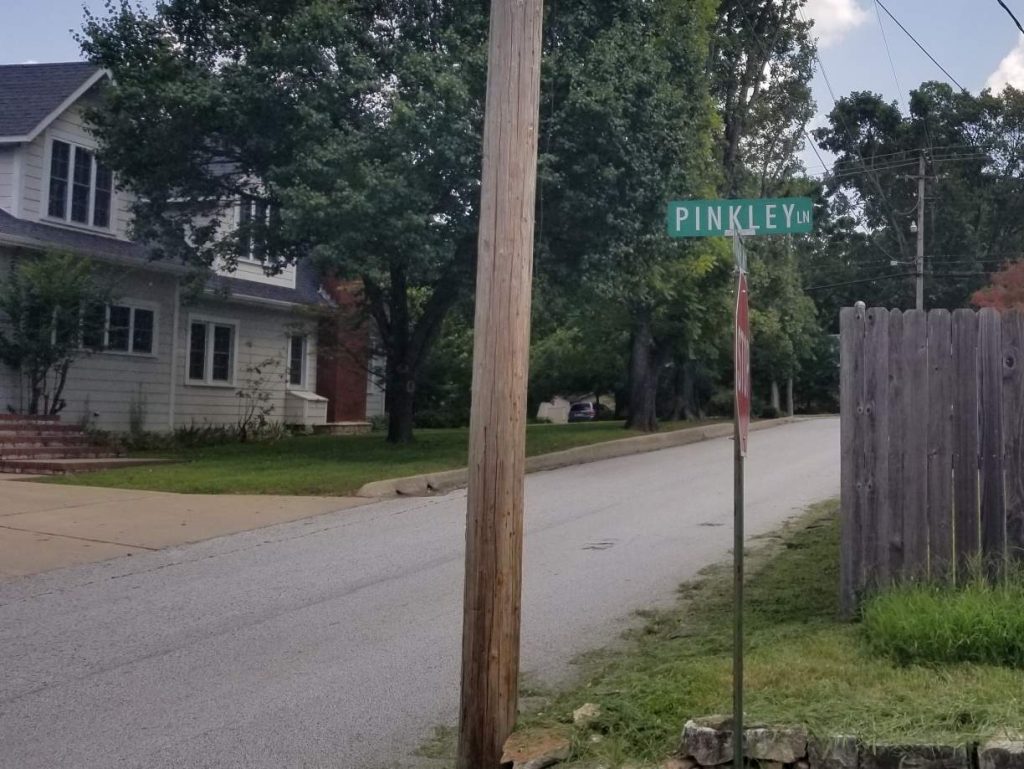Richard Banks never married and was for several years the only African-American in Eureka Springs, Arkansas. Born in 1913, he grew up on Cliff Street, had four years of education and was raised by his mother, Hattie Fancher, and later his Aunt Mattie. Both women were laundry workers. In 1939, Richard Banks worked 36 weeks for an income of $200. That information came from U.S. Census records.
I learned more talking to a handful of the many people who knew him. He bought hamburgers and Camel cigarettes at Vicie Pinkley’s Bus Stop Cafe across from the courthouse on Main Street. Even when invited in, he would extend his arm in through the door, the rest of him staying outside.
Richard Banks worked many years as groundskeeper for the Freemans at the Joy Motel. Tom Hughes said that before Rich had a car, he worked out an arrangement with Norman Tucker, owner of the taxi company, for cab rides up the hill to work. He also mentioned that if a black lady was staying at the Basin Park Hotel, Rich would show up looking sharp.
Several people mentioned he later drove a fine Model A Ford. Thomas Black recalled that Rich would give him rides up Benton Street to school, the car easily climbing the hill. He’d want to ride on the running boards, but Rich always insisted he get in the vehicle.
Others told me of Richard Banks taking aside African-Americans who came to town and giving them advice about what businesses and people to avoid. He did not want trouble for anyone.
I heard of Richard Banks fishing with Tommy Colvin and others. Once hunting out in the Hillspeak area, Duane O’Connor met Richard Banks in the woods. Duane, hunting with a single-shot .22 rifle, noted that Rich was carrying a shotgun. “Some do it for the sport, I do it for the meat,” Banks said.
The remains of Richard Banks’ house are on Barrel Spring Curve west of town. People said he’d stand at the window waving at the passing cars. He died in 1973 and is buried in the Eureka Springs Odd Fellows Cemetery.
Just a fraction of the stories I heard about Richard Banks are included here. If you have a story, comment or correction, let me know at steve@steveweems.com or P.O. Box 43, Eureka Springs AR 72632.
I had a very nice message from Genevieve Head Bowman telling me that she, too, attended the film at the movie theater the evening of Pearl Harbor being bombed. The film was Shepherd of the Hills.

